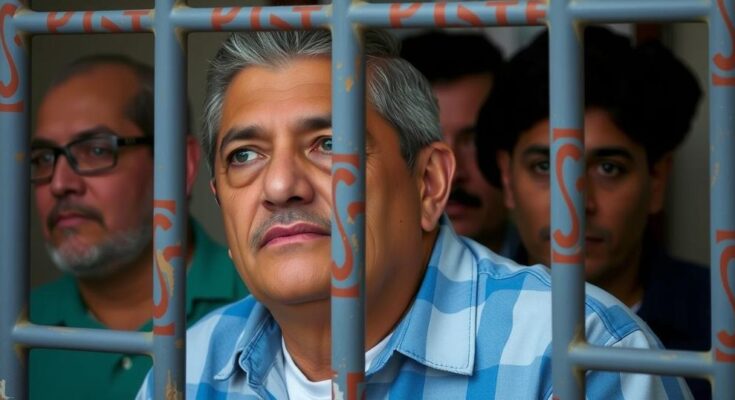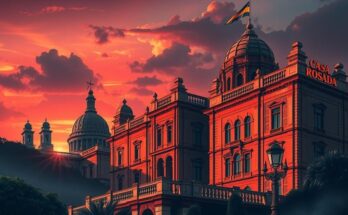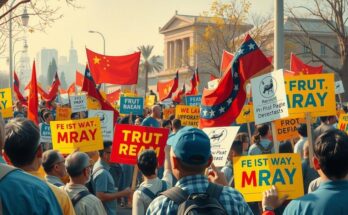The Venezuelan government released 103 individuals imprisoned after the disputed July election, in which President Maduro was accused of fraud by the opposition. Despite this move, tensions remain high due to continued repression of dissent and calls for election transparency, with opposition leaders still facing harassment and arrests. The situation escalated post-election, leading to widespread protests and violence across the nation.
The Venezuelan government, led by President Nicolas Maduro, recently announced the release of 103 individuals who had been imprisoned following the contentious national elections held in July. This decision was taken amidst ongoing allegations from the opposition that the election results were manipulated in Maduro’s favor. Over a 72-hour window, these individuals were freed as part of a broader review of cases concerning electoral violence. In addition to the released prisoners, other detainees received ‘precautionary measures’ allowing for conditional freedoms.
Despite this apparent gesture towards reconciliation, the Maduro administration continues to face pressure from opposition factions and international leaders. They have been called upon to disclose electoral data that could substantiate Maduro’s claim of victory. The electoral body announced Maduro’s win shortly after the July elections, despite evidence suggesting that opposition candidate Edmundo Gonzalez had a significant lead in pre-election polls.
The situation escalated post-election, with widespread protests erupting across the country, leading to violent clashes between demonstrators and security forces. Reports indicate that at least 28 people lost their lives, and numerous others were injured during these confrontations. Furthermore, approximately 2000 arrests were made, exacerbating the already tense political climate in Venezuela. Amidst these developments, several opposition leaders, including Gonzalez who has sought asylum in Spain, have faced threats and continued repression from the Maduro regime.
Simultaneously, an opposition party has reported the detention of several regional leaders, further highlighting the government’s crackdown on dissent. Gonzales, who fled in September, described his exit as fraught with intimidation and threats, suggesting a systemic approach to stifle opposition. As tensions mount, efforts by opposition members to find refuge, such as those who have taken shelter within the Argentine embassy, reflect the dire situation faced by political dissidents in Venezuela.
Venezuela’s government has additionally faced accusations regarding the treatment of asylum seekers within the embassy, as the Argentine government claims that the Maduro regime is engaging in harassment by cutting off basic resources. These developments underscore the ongoing political turmoil and the challenges facing both the government and the opposition in Venezuela today.
The context of this article is rooted in the post-election environment of Venezuela, which has seen heightened tensions following the July elections. President Nicolas Maduro’s administration has been met with allegations of electoral fraud from international observers and local opposition groups. Historical grievances surrounding political repression and the treatment of dissenters have characterized Maduro’s tenure, especially following controversial elections. This release of prisoners, while seen as a positive step, is juxtaposed against ongoing calls for transparency and accountability from the government regarding the electoral process and the treatment of opposition figures.
In summary, the release of over 100 political prisoners in Venezuela highlights both the complexities of the country’s ongoing political crisis and the Maduro government’s attempts to project an image of leniency amid increased scrutiny. While this act can be perceived as a response to mounting domestic and international pressure, it does not absolve the administration from the allegations of electoral misconduct and the systematic repression of dissent. The political atmosphere remains fraught as opposition figures continue to face legal challenges and harassment, compelling many to seek refuge abroad.
Original Source: www.aljazeera.com




